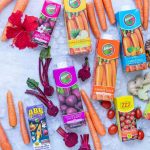Let’s Talk Male Health – Adrian Penzhorn
As we dust off the cobwebs of inactivity and comfort eating through Winter (and lockdown), we start focusing on exercise and nutrition. Our Summer body goals are in full force and men’s health is in the spotlight this month.
I often get asked whether males and females need different approaches to nutrition. Typically the answer is “NO”. Lifestyle interventions are not determined by X or Y chromosomes but there are a few small points to keep in mind.
Firstly, portion needs are often slightly different. This boils down mainly to body size where a larger amount of muscle requires more fuel to move. Most males have a bigger frame and thus need more food. If you are more active this increases those needs even further. Many health and weight-related goals can be achieved by eating the right amount of food. This will vary for everyone but the “Portion Guide” below is a simple tool to start with on your journey to correct portion control. I would typically recommend the following portions per meal, for an active male:
- 2 palms of protein-rich foods
- 2 cupped hands of starch or fruit
- 2 fists of veggies
- 2 thumbs of fat-rich foods
If you are looking to lean up, reduce your starch, fruit, or fat-rich foods. If you are very active add a bit more of these food groups to help refuel and recover.
| Protein – meat, dairy, fish, chicken, beans, soy, eggs
Starch and fruit – grains, cereals, bread, potato, sweet potatoes, fresh fruit Vegetables – all non-starchy vegetables, greens, and salads Fats – nuts, seeds, avo, oils, dressings, cheese |
Things are also a little more interesting when we look into how certain foods might help protect men from prevalent male diseases. Movember helps us shine a light on issues like this, raising money and awareness and making a difference in mental health and suicide prevention, prostate cancer, and testicular cancer. Men are dying on average 6 years earlier than women and for largely preventable reasons. The strongest positive influences on preventable diseases are maintaining a healthy weight, limiting stress, keeping fit, and following a balanced diet. A diet that has a strong vegetable component, that limits processed foods, and is rich in nutrients should be a focus.
Nutrients that seem to be beneficial in lowering the risk of cancer specifically include phytonutrients (plant nutrients) such as those from the carotene family. Lycopene and alpha-carotene are examples of these that show promise.
Lycopene is a plant nutrient that gives fruit and vegetables their dark red color and is most prominent in tomatoes but also found in watermelon and grapefruit. Alpha-carotene is a plant nutrient that gives fruit and vegetables their red-orange color and is rich in carrots, pumpkin, and sweet potato.
Both are better absorbed when consumed with a source of fat and lycopene is more readily absorbed after heating, so some tomatoes cooked with a drizzle of heart-healthy olive oil and served with roasted pumpkin are a good option to include in your diet regularly! Both of these nutrients act as antioxidants and help limit the cell damage caused by excessive oxidation that is linked to cancer. Dietary intake of lycopene is strongly associated with a reduced risk of prostate cancer. Two other nutrients of interest in this space are selenium, from Brazil nuts and curcumin, from turmeric that might help reduce the risk of cancer too. Not to forget the role a balanced diet plays for mental health, curcumin, as well as fish oils, are also strongly linked to reduced symptoms of depression.
While we use this month to talk about men’s health, both physically and mentally, let’s take the opportunity to nourish ourselves with good nutrition. Focus on your portions, try to include a variety of plant nutrients and color and if reds and oranges are not part of your diet now is your chance to make some changes.
References:
- Giovannucci et al J Natl Cancer Inst . 1995 Dec 6;87(23):1767-76. doi: 10.1093/jnci/87.23.1767.
- Michaud et al Am J ClinAm J Clin Nutr. 2000 Oct;72(4):990-7. doi: 10.1093/ajcn/72.4.990.
- Capurso et al Front Nutr Aug 24;4:38. doi: 10.3389/fnut.2017.00038. eCollection 2017.
- Hurst et al Am J Clin Nutr 2012 Jul;96(1):111-22. doi: 10.3945/ajcn.111.033373. Epub 2012 May 30.
- DiSilvestro et al Nutr J . 2012 Sep 26;11:79. doi: 10.1186/1475-2891-11-79.

Author Bio:
Adrian Penzhorn is a dietitian and performance nutritionist with a background in physiology and sport science.
He is coach and nutritionist at JEFF Fitness and founder of The Performance Kitchen. His passion is unleashing the power of food and finding personalised solutions to fuel any lifestyle. He is either in the kitchen or on the trails.
Author Handles/links:
@adrianpenzhorn
Facebook: https://www.facebook.com/adrianpenzhorn
Instagram: https://www.instagram.com/adrianpenzhorn/




